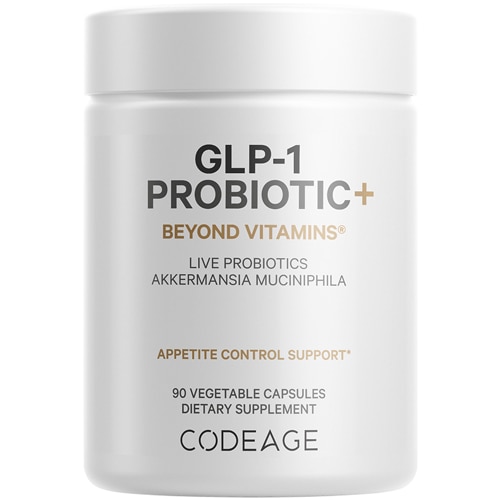[vc_row][vc_column][vc_column_text]GLP-1 medications including popular brands like Ozempic®, Wegovy®, Mounjaro® and Zepbound® have revolutionized the management of
diabetes and
obesity for many individuals. These drugs work by slowing digestion, stabilizing blood sugar levels and suppressing appetite, which together may result in better glucose control and significant weight loss. However, as with any medical therapy, there may be situations where discontinuing the medication becomes necessary or desirable. Understanding what happens when you stop taking GLP-1 medications can help you prepare for the changes ahead and ensure a safe, successful transition.

Common Reasons for Discontinuing GLP-1 Therapy
People stop taking GLP-1 medications for a variety of reasons. Some of the most frequent include changes in cost or insurance coverage, unpleasant side effects like nausea,
constipation, vomiting or fatigue and the achievement of a targeted weight or health goal. Others may notice a plateau in results or diminished effectiveness over time, prefer a more natural or lifestyle-based approach, or follow their doctor’s recommendation due to medical concerns. No matter the reason, it’s crucial to consult with a healthcare provider before making any changes to your medication regimen.
What Happens When You Stop Taking Semaglutide & Other GLP-1s
Appetite changes and weight regain
While stopping GLP-1 medications does not cause withdrawal symptoms, it does alter how your body manages hunger,
blood sugar and weight. Most people notice an increase in appetite as hunger signals return to normal. You may find yourself craving carbohydrates or sugary foods more intensely and eating larger portions at meals. Some weight regain is common, especially if old eating habits reemerge. However, by adopting healthy nutrition, regular exercise, adequate
sleep and
stress management techniques, you can reduce the risk of regaining lost weight.
Blood sugar changes
Blood sugar levels can also rise, particularly for individuals with diabetes or prediabetes, as insulin resistance may return. It’s important to monitor your blood glucose carefully during this transition period, as it can fluctuate more than usual. Digestive changes are also typical: digestion speeds up, hunger may become more frequent, and bowel patterns can shift. Some people experience relief from the side effects of constipation, while others may have temporary bouts of diarrhea.
Steps to Safely Discontinue GLP-1 Medications
Stopping GLP-1 therapy should always be a planned and coordinated process with your healthcare provider. Abrupt discontinuation is generally discouraged, as gradually tapering the dose can help minimize rebound appetite and reduce blood sugar instability. Eating regular meals that include
fiber,
protein and healthy fats is crucial for managing hunger effectively.
Prioritize lean protein sources like low-fat Greek yogurt, eggs, chicken, tuna,
tofu,
lentils and
beans at every meal and snack to help maintain muscle mass and support healthy digestion. Occasionally a
protein supplement may be needed to meet protein goals.
Incorporating strength-based exercise, such as weightlifting or resistance training, two to three times a week can further support your metabolism and help prevent rapid weight regain. Weekly tracking of your weight and blood sugar (if applicable) allows you to catch changes early and address them proactively.
Maintaining Your Progress After Stopping Medication
The key to maintaining the progress you achieved with GLP-1 medications is to establish small, sustainable lifestyle habits. Practice mindful eating by paying attention to hunger and fullness cues and avoid eating out of boredom or emotion. Strive for balanced meals by filling half your plate with vegetables, a quarter with lean protein and a quarter with whole grains or starchy foods. Stay hydrated, prioritize sleep and find ways to manage stress, as these factors also influence appetite and metabolism.
The Bottom Line: Transitioning Successfully Off GLP-1s
Discontinuing a GLP-1 medication is a highly personal decision that should be approached with realistic expectations, thorough planning and ongoing support. After stopping, most people experience a return of appetite, potential weight gain and shifts in blood sugar, but these changes can be managed with the right strategies. Relying on lifestyle changes such as nutrition, physical activity, accountability and regular medical guidance, becomes essential once the medication is no longer providing its benefits. With dedication and expert support, maintaining your health goals is possible.
For tailored advice on managing your health as you transition off a GLP-1 medication, consider scheduling an appointment with a
Kroger Health registered dietitian, our nutrition experts. Their expertise can help you develop a personalized plan that supports long-term success and wellness.[/vc_column_text][/vc_column][/vc_row][vc_row][vc_column][vc_text_separator title="Featured Products" border_width="2"][vc_row_inner equal_height="yes" content_placement="middle" gap="35"][vc_column_inner width="1/3"][vc_single_image image="191487" img_size="full" alignment="center" onclick="custom_link" img_link_target="_blank" css=".vc_custom_1767188636841{padding-right: 7% !important;padding-left: 7% !important;}" link="https://www.vitacost.com/vitafusion-glp-1-support-with-fiber-plus-vitamin-d-b12-folate"][/vc_column_inner][vc_column_inner width="1/3"][vc_single_image image="191486" img_size="full" alignment="center" onclick="custom_link" img_link_target="_blank" css=".vc_custom_1767188650168{padding-right: 7% !important;padding-left: 7% !important;}" link="https://www.vitacost.com/nutri-glp-1-gut-fiber-255g-tub-increase-satiety-activate-glp-1-beta-glucans-acacia-fiber"][/vc_column_inner][vc_column_inner width="1/3"][vc_single_image image="191485" img_size="full" alignment="center" onclick="custom_link" img_link_target="_blank" css=".vc_custom_1767188662073{padding-right: 7% !important;padding-left: 7% !important;}" link="https://www.vitacost.com/nature-made-glp-1-companion-health-pack-multi-b12-calcium-d3"][/vc_column_inner][/vc_row_inner][/vc_column][/vc_row]




